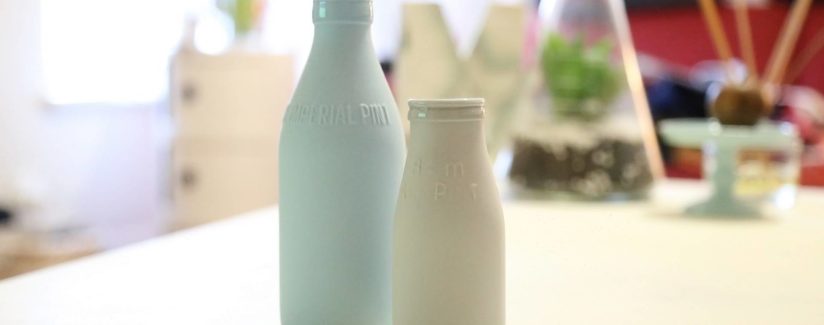
Essentials for a Healthy Diet When Pregnant
There is a lot of effort that goes into raising a baby – and that starts with the pregnancy; many women are looking for one perfect diet when they are expecting. However, is there much difference between a normal healthy diet and a healthy pregnancy diet? Should you continue to eat normally? To find out we contacted Sukhinder Kaur Cheema, PhD, professor at Memorial University and an expert in maternal nutrition.
What’s the difference between a healthy diet and a healthy pregnancy diet?
Dr. Sukhinder: “Eating healthy, in general, is important as it maintains and improves health, and prevents the onset of diseases. However, eating healthy during pregnancy is crucial, as during this stage, the mother must maintain her own health, along with providing proper nourishment to the developing and growing fetus. Lack of certain nutrients during pregnancy not only impacts proper growth and development of the fetus, it also puts the newborn at a higher risk of diseases in later life, such as the development of diabetes, obesity, hypertension and heart disease. This is because the lack of certain nutrients during pregnancy, or the over-consumption of certain nutrients during this stage, can alter the genetic makeup of the newborn, thereby predisposing them to a higher risk of diseases in later life.”
What foods should I avoid while pregnant?
Dr. Sukhinder: “Alcohol should be avoided; there is no safe level of alcohol that one can have during pregnancy. One should limit the intake of processed foods as these foods are rich in preservatives, salt and may also contain trans-fat. Limit the intake of simple sugars; sugar contains calories without providing any other nutrients, and can contribute to weight gain, causing complications during pregnancy. Too much saturated fat intake can increase the chance of developing heart disease, not only for the mother but also for the newborn in their adult life. Try to cut down on saturated fat and consume foods rich in monounsaturated (olive oil, avocado) and polyunsaturated (such as oils, nuts) fats. Also, limit foods containing added salt; studies have suggested that high salt intake during pregnancy may cause hypertension in the adult life of the newborn.”
According to the American Pregnancy Association (APA), some foods to avoid include:
- Raw meat
- Fish with mercury
- Smoked seafood
- Raw shellfish
- Raw eggs
- Raw sushi
- Soft cheeses
- Caffeine
- Alcohol
- Unwashed vegetables and fruit
Is there anything that expectant mothers should eat more of? What should they be looking for in the foods they consume?
Dr. Sukhinder: “One should aim for a balanced diet, and include a blend of vegetables, legumes/beans, breads and cereals, milk, yogurt and cheese, meat, poultry, fish and alternatives, and fruits. Protein-rich foods help the baby grow. Good sources of protein are meat, fish, chicken, eggs, milk, cheeses, nuts and beans.
“During pregnancy, omega-3 fatty acids are crucial for fetal brain and eye development. Fatty fish, such as salmon and mackerel, are a good source of omega-3 fatty acids, however, heavy metals in fish are a concern during pregnancy. Aim for cultured fish over wild fish or take fish oil supplements. Folate is crucial during pregnancy; green leafy vegetables are an excellent source of folate. The need for iron also increases during pregnancy. Generally, women have difficulty getting enough iron and folate from foods during pregnancy, thus they should take a supplement that contains folic acid and iron.”
Is it really true that a pregnant woman is eating for two?
Dr. Sukhinder: “It is true that women need to eat more during pregnancy. Energy needs for pregnant women increase during their second and third trimesters. During the second trimester, women with a normal body weight at the start of their pregnancy need an extra 350 calories a day, while the need increases to an extra 450 calories per day in their third trimester. The extra calories are required to support the growth and development of the baby. The extra calories can be easily met by including an extra two to three Food Guide Servings each day, for example a fruit and yogurt for a snack.”
Is it still okay to indulge every once and a while?
Dr. Sukhinder: “Pregnancy is the time when women go through mood and behavioral changes, which is normal due to changes in hormone balance. It is perfectly fine to indulge every once in a while, whether one is pregnant or not. The key factor to keep in mind is to limit the intake of simple sugars, added salt and oily foods.”
What are the most common deficiencies in expectant mothers’ diets?
Dr. Sukhinder: “One of the most common nutrient deficiencies in expectant mothers’ diet is omega-3 fatty acids. Make sure to include flax, chia seeds, hemp seeds, walnuts, fish or fish oil supplements as part of the diet. Folate and iron deficiencies are common. Some other nutrients, such as zinc, magnesium and vitamin B6 are also difficult to meet from food alone. Expectant mothers’ should eat according to Canada’s Food Guide to meet nutrient requirements. Expectant mothers should take a daily multivitamin that has 0.4 mg of folic acid and 16 to 20 mg of iron.”
The basis of a healthy pregnancy diet is similar to a typical healthy diet. This includes a balanced mix of protein, calcium, whole grains, healthy fats and a rainbow of fruits and vegetables. It’s important to consume enough protein, omega-3 fatty acids, folate and iron. And don’t forget, some things are best consumed in moderation.


























